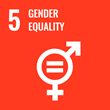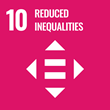
Project information
Informal Judicial Institutions: Invisible Determinants of Democratic Decay
(INFINITY)

- Project Identification
- 101002660
- Project Period
- 9/2021 - 8/2026
- Investor / Pogramme / Project type
-
European Union
- Horizon 2020
- ERC (Excellent Science)
- MU Faculty or unit
-
Faculty of Law
- prof. JUDr. David Kosař, Ph.D., LL.M., J. S. D.
- Mgr. Adam Blisa
- Mgr. Lukáš Hamřík, Ph.D.
- Etienne Hanelt, M.A.
- JUDr. Ondřej Kadlec, J.D., MPhil, Ph.D., DPhil
- Mgr. Bc. Michal Kovalčík
- Mathieu Leloup, PhD, LL.M.
- Mgr. et Mgr. Kateřina Ochodková
- Mgr. Bc. Jan Petrov, Ph.D., LL.M.
- Mgr. Hubert Smekal, Ph.D.
- Samuel Spáč, Ph.D., M.A.
- Mgr. et Mgr. Katarína Šipulová, Ph.D., MSt
- Mgr. et Mgr. Marína Urbániková, Ph.D.
- PD Dr. Attila Vincze, LL.M.
- Project Website
- https://justin.law.muni.cz/en/projects/infinity-2021-2026
Mainstream literature on courts and judges in law (as well as in political science) focuses primarily on formal rules. Yet in many contexts, informal institutions, ranging from bureaucratic and legislative norms to clientelism and patrimonialism, shape even more strongly judicial behavior and outcomes. Various “gentlemen’s pacts” between judicial associations may compete with or even substitute formal rules governing selection and promotion of judges. They may entrench patronage and vertical as well horizontal gender segregation or allow a smooth court-packing. Similarly, politically savvy chief justices can tweak the formal rules and forge alliances with politicians, for the good as well as for the bad. Recent literature has acknowledged the existence of these informal institutions. However, the range of these informal institutions and their effects are not fully understood, as the traditional doctrinal and normative scholarship is not able to capture them. INFINITY will fill this gap and address the implications of this phenomenon for the “new” as well as “old” EU member states.
The central research question of INFINITY is: how informal institutions affect functioning of the judiciary? More specifically, the INFINITY proposal consists of three interrelated research aims. The first aim is to identify the most important informal judicial institutions in the “new” as well as “old” EU member states and at the two European supranational courts. The second aim is to assess the impact of selected informal institutions on the domestic judiciaries of 8 European states and on the ECtHR and the CJEU. The third overarching aim is to analyse the reasons and mechanisms behind the emergence of informal institutions, and the nature of their stability and change in different political environments.
Sustainable Development Goals
Masaryk University is committed to the UN Sustainable Development Goals, which aim to improve the conditions and quality of life on our planet by 2030.
Publications
Total number of publications: 65
2023
-
(No) Ghost in the Shell: The Role of Values Internalization in Judicial Empowerment in Slovakia
German Law Journal, year: 2023, volume: 24, edition: 8, DOI
-
A Hybrid Judiciary in a Hybrid Regime: A Case Study on Hungary
Year: 2023, type: Appeared in Conference without Proceedings
-
A Hybrid Judiciary in a Hybrid Regime: A Case Study on Hungary
Year: 2023, type: Special-purpose publication
-
Actors of Informal Judicial Institutions and Practices
German Law Journal, year: 2023, volume: 24, edition: 8, DOI
-
Backsliding, European Union, and War
Year: 2023, type: Appeared in Conference without Proceedings
-
Comparative court-packing
ICON-INTERNATIONAL JOURNAL OF CONSTITUTIONAL LAW, year: 2023, volume: 21, edition: 1, DOI
-
Constitutional Conventions Concerning the Judiciary beyond the Common Law
German Law Journal, year: 2023, volume: 24, edition: 8, DOI
-
Court-Unpacking: A Preliminary Inquiry
Transition 2.0 Re-establishing Constitutional Democracy in EU Member States, edition: Vyd. 320, year: 2023, number of pages: 38 s.
-
Decay or Erosion? The Role of Informal Institutions in Challenges Faced by Democratic Judiciaries
German Law Journal, year: 2023, volume: 24, edition: 8, DOI
-
European Standards of Judicial Governance: From Soft Law Standards to Hard Law
Journal für Rechtspolitik, year: 2023, volume: 30, edition: 4, DOI





